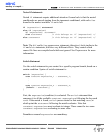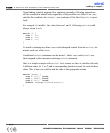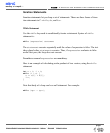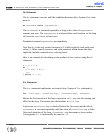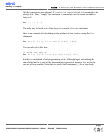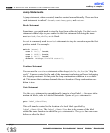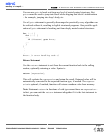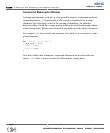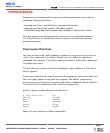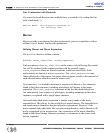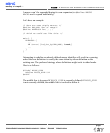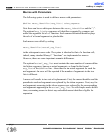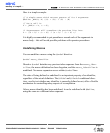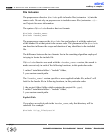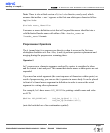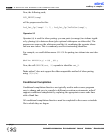
Preprocessor is an integrated text processor which prepares the source code for
compiling. Preprocessor allows:
- inserting text from a specifed file to a certain point in code,
- replacing specific lexical symbols with other symbols,
- conditional compiling which conditionally includes or omits parts of code.
Note that preprocessor analyzes text at token level, not at individual character
level. Preprocessor is controled by means of preprocessor directives and pre-
processor operators.
Preprocessor Directives
Any line in source code with a leading # is taken as a preprocessing directive (or
control line), unless the # is within a string literal, in a character constant, or
embedded in a comment. The initial # can be preceded or followed by whitespace
(excluding new lines).
The null directive consists of a line containing the single character
#. This line is
always ignored.
Preprocessor directives are usually placed at the beginning of the source code, but
they can legally appear at any point in a program. The mikroC preprocessor
detects preprocessor directives and parses the tokens embedded in them. Directive
is in effect from its declaration to the end of the program file.
mikroC supports standard preprocessor directives:
# (null directive) #if
#define #ifndef
#elif #ifndef
#else #include
#endif #line
#error #undef
Note: #pragma directive is under construction.
MikroElektronika:
Development
tools
-
Books
-
Compilers
12 5
page
mikroC
- C Compiler for Microchip PIC microcontrollers
mikroC
making it simple...
PREPROCESSOR



